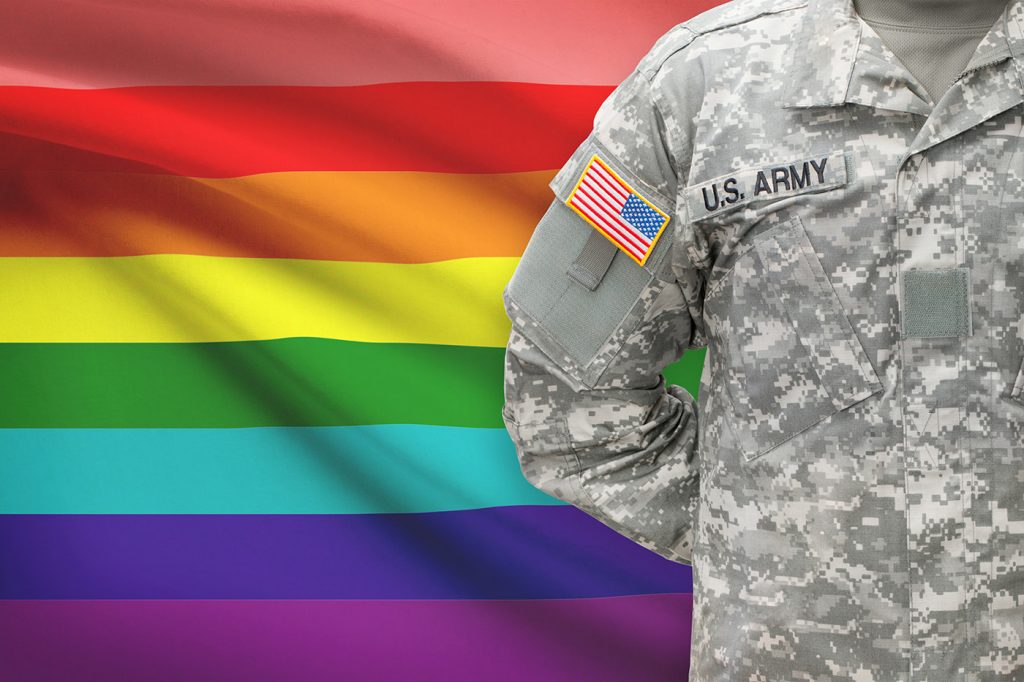
Late last month, U.S. District Judge Colleen Kollar-Kotelly partially enjoined President Trump’s ban on transgender military personnel, while allowing the ban on sex-reassignment surgery to remain intact. In July, the President tweeted his intention to prohibit the inclusion of transgender people in the US Armed Forces, arguing that “[the] military must be focused on decisive and overwhelming […] victory and cannot be burdened with the tremendous medical costs and disruption that transgender in the military would entail.”
The Memo
Almost exactly a month later, the President signed a memorandum, ordering the Secretaries of Defense and Homeland Security “to return to the longstanding policy and practice on military service by transgender individuals that was in place prior to June 2016,” when President Obama first allowed transgender people to serve openly in the armed forces. Additionally, the President directed the cabinet members to stem the flow of “[military] resources to fund sex reassignment surgical procedures.” Defense Secretary James Mattis was given until February of next year to collate a plan of implementation.
Initial Lawsuit
On August 9th, prior to the release of the memo, the GLBTQ Legal Advocates and Defenders (GLAD) filed a complaint on behalf of five transgender members of the military and submitted a motion for preliminary injunction, which was partially granted by Judge Kollar-Kotelly in the October 30th ruling.
According to the complaint, the President’s ban violates the constitutional rights of the plaintiffs, specifically undermining their Fifth Amendment rights to equal protection and due process. Additionally, the ban ignores military-sponsored research showing that banning transgender people from the military would have negligible effects on military healthcare costs and overall operations.
Rand Study
The Rand Corporation released a study just prior to Obama’s decision to allow transgender people to serve openly in the military. The study found that the funding of sex-reassignment surgery would only result in a 0.13 percent increase in healthcare costs, as only 0.1 percent of the military would require such medical attention. Rand recommended that the Department of Defense (DoD) communicate “the benefits of an inclusive and diverse workforce to successfully implement a policy change and successfully integrate openly serving transgender service members into the force.”
The Ruling
Judge Kollar-Kotelly’s ruling protects transgender people already serving in the military from discrimination and from being expelled. If upheld, the ruling will not reinstate sex-reassignment surgery, nor will it force the military to accept new transgender recruits.
Sex-Stereotyping
Kollar-Kotelly argued powerfully in favor of transgender rights, asserting that discrimination against a person on the basis of gender is equivalent to sex-based discrimination, which is prohibited by Title VII of the Civil Rights Act of 1964. The judge utilized a theory known as sex-stereotyping, according to which all discrimination against transgender people relies on a stereotype: a person born with male genitalia should behave according to societal norms dictating maleness. The so-called trans-ban relies on this discriminatory formula to exclude particular people who fail to conform to specific stereotypes. Put another way: if the plaintiffs were cis-gendered people, they wouldn’t face such hardship. This, Kollar-Kotelly argued, is a form of sex-discrimination.
Questionable Motivation
Additionally, the judge argued that the military had already released its own study contradicting the justification of the ban. The Department of Justice argued that inclusion of transgender people would undermine “unit cohesion,” but that very claim was ruled out by the Rand study released last year. This, the judge argued, could mean that Trump was animated by some other motivation and not directed by sober policy. Trump also announced his decision via Twitter, a rather unceremonious display, which according to Judge Kollar-Kotelly, provides “support for Plaintiffs’ claim that the decision to exclude transgender individuals was not driven by genuine concerns regarding military efficacy.”
The ruling temporarily blocks Trump’s effort to banish transgender people from the military, but it does not require the military to accept new transgender recruits, at least while Mattis’ delay of transgender enlistment is in effect. It is likely that the US government will seek another ruling, which could mean the issue will eventually find its way to the Supreme Court.



Leave a Comment